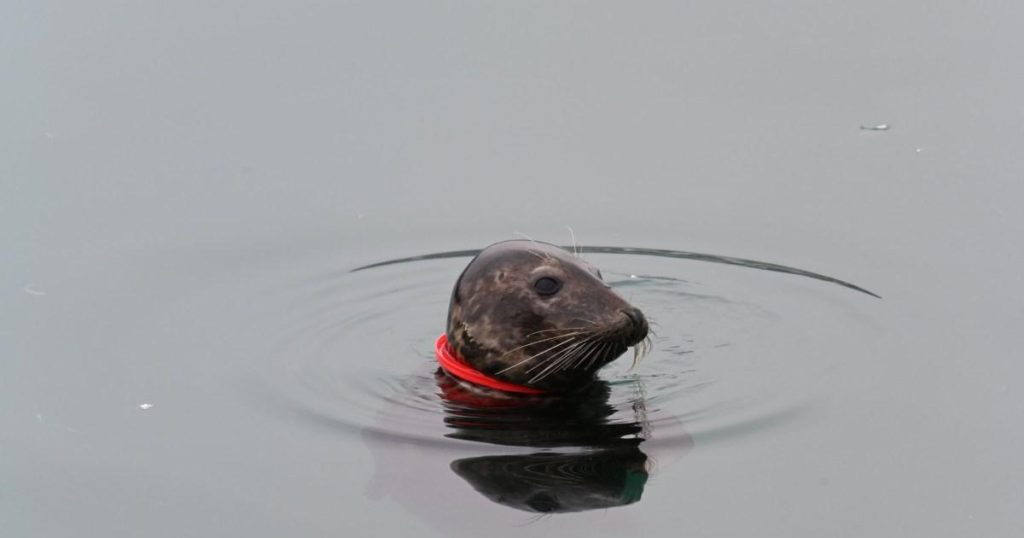A juvenile grey seal faces a grim fate in Brixham Harbour, Devon, entangled in a ring of plastic that threatens to slowly choke it to death. The vibrant red plastic, likely the discarded seal from a tin of marine paint, attracted the young seal’s playful curiosity, trapping it in a deadly embrace. Sarah Greenslade of the Seal Project, a local organization dedicated to marine mammal welfare, is deeply concerned about the seal’s predicament. While the seal currently appears healthy, the unrelenting plastic collar poses a grave and escalating danger. As the seal grows, the rigid plastic will tighten, constricting its neck and ultimately cutting into its blubber, leading to a slow and agonizing demise.
Rescue efforts are hampered by the seal’s aquatic environment. Trapping or tranquilizing a seal in the water is deemed too risky. The only hope lies in the seal hauling itself out onto land, a behavior not typical for this species, especially in a bustling harbor environment. Greenslade and her team maintain vigilant watch over the seal, hoping for an opportunity to intervene. The situation is a stark reminder of the devastating impact of plastic pollution on marine life, turning discarded human waste into deadly traps for unsuspecting animals.
The distressing incident unfolds in Brixham Harbour, a renowned haven for seals and a popular tourist spot on the south coast of Devon. Ironically, the harbor’s rich fish stocks, which attract seals to the area, are now overshadowed by the looming threat of plastic debris. Visit South Devon, a local tourism organization, highlights Brixham Harbour as a prime location for seal watching, encouraging visitors to admire these captivating creatures as they rest in the harbor or scavenge for discarded fish. The entangled seal serves as a tragic counterpoint to this idyllic image, transforming a symbol of natural beauty into a poignant reminder of human negligence.
The British Divers Marine Life Rescue echoes the Seal Project’s concerns, emphasizing the urgency of the situation. As the seal continues to grow, the unrelenting plastic will progressively tighten, causing increasing discomfort and eventually inflicting fatal injuries. The stark reality is that without human intervention, the seal’s chances of survival are slim. The incident underscores the critical need for responsible waste management and highlights the devastating consequences of plastic pollution on marine ecosystems.
The UK, home to both grey seals and common seals, considers these marine mammals protected species. The Mammal Society estimates the UK grey seal population at around 120,000 adults. The plight of the Brixham seal represents a broader threat to these protected populations, highlighting the vulnerability of marine life to human-generated debris. This incident serves as a stark reminder of the shared responsibility to protect these magnificent creatures and their fragile environment.
The ongoing struggle to rescue the entangled seal underscores the complex challenges involved in marine conservation. The limitations of current rescue techniques, coupled with the inherent risks associated with intervening in the seal’s natural habitat, further complicate the situation. The incident serves as a call to action, emphasizing the urgent need for innovative solutions to address the growing threat of plastic pollution to marine wildlife. The fate of the young seal hangs precariously in the balance, a poignant symbol of the ongoing battle to protect our oceans and their inhabitants from the devastating consequences of human activity.











